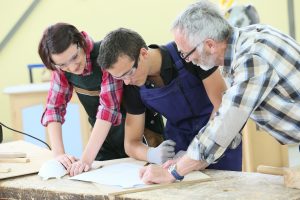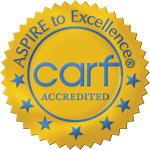Motivation is a crucial component to recovery because it defines the reasons why we act or behave in a particular way. Often in early recovery, motivation levels are high and there are plans and ideas in place to remain sober. However, as time passes, our motivation to remain sober can begin to decrease for various reasons. Perhaps life has become stressful, work is overwhelming, and life doesn’t seem as fun sober. When recovery fatigue strikes, relapse becomes a concern. So what are some ways to ensure you’re staying motivated in recovery? These tips can help:
Connect with the recovery community
In today’s world there are more and more opportunities to connect and interact with recovery communities. Of course, there are the traditional AA/ NA and Celebrate Recovery meetings, but there are also several other options. Many online social media communities allow you to connect and interact with other recovering addicts from all over the world. Additionally, there are online meetings and interactive chat sessions one can participate in to stay connected. And staying connected is a sure-fire way of staying motivated as you set out on a lifelong recovery journey.

Set achievable goals
A great way to stay motivated is to set both short-term and long-term goals. Setting goals and having “checkpoints” can keep you on track and give you rewarding feelings of accomplishment and progress toward a goal. Make sure goals are measurable (How do you know how close you are to achieving it?) and specific (Can you clearly define when your goal will be met?).
Create a gratitude list
Recovery is not a smooth journey—there will be both good times and difficult times. Being able to find something to be grateful for, in both the good and the difficult times, can keep you on the path to recovery. Get in the habit of making daily lists, and remember—there is always something to be grateful for in recovery!
Keep a recovery journal, blog, or videos
As time passes, it can be easy to forget our beginning struggles and the reasons we had for wanting to get sober. We might become complacent if we feel we haven’t made progress. By keeping a journal, blog, or video-blog, you can more easily see the progress and growth of your journey, making staying motivated an easier task. You might even have a desire to share your writings or videos with others who are struggling (—which would be service work!).

Create structure
Chaos can be overwhelming. By having a structured schedule of healthy and positive activities from day to day, you can create a sense of order in your life. This is also a great way to improve your goal-setting and goal-reaching work.
Work a 12-step program
Working the 12 steps with a sponsor can help guide you and keep you motivated to continue the progress in your journey of recovery. These programs provide a reliable resource for accountability, fellowship, and spirituality.
Service Work
A well-known quote in Alcoholics Anonymous is, “To keep it, you must give it away.” Helping others who are struggling can give people hope and strength to continue with their own recovery. It allows people to recognize where they are and how far they have come in their journey. Service work can look different for everyone. It could be as little as offering a ride to a meeting or setting up chairs and making coffee, or it could be as much as becoming a sponsor or acting as a guest speaker at a local event.

Practice self-care
Make sure you try to take at least 20 to 30 minutes a day doing something you enjoy for yourself. It is easy to get caught up in the busy routines of life: work, relationships, meetings, obligations—the list goes on. If we don’t balance our lives and do things we enjoy, we might become overwhelmed and stressed. Take the time to read, journal, meditate, pray, exercise, practice a hobby, or listen to music.
Connect spiritually to a higher power
One can find meaning in spirituality through organized religions, AA/ NA groups, nature, music, groups of people, or an understanding of a higher power. Spirituality can change, evolve, and grow over time. Feeling connected to something bigger than yourself can help keep you motivated and accountable to continue your recovery journey.
Maintain healthy sleep, eating, and exercise habits
Addiction can wreak havoc on our bodies. Sticking to healthy habits can help alleviate symptoms of depression and anxiety and decrease bad moods. Getting enough sleep, exercise, and water and fueling our bodies with healthy foods can help us feel good both physically and mentally.

Seek help if you are struggling
Recovery is a journey, and that means there will be bumps along the way. It’s about progress, not perfection. Everyone struggles during their journey, and being honest about our struggles allows us to reach out to those who are supportive and willing to help. Build a support system, and use it, too! The people you reach out to might be able to help re-spark your motivation, but they’ll never be able to help if you don’t speak up when you’re in need.
— Ashley M. Stuck, MSSW, CSW










